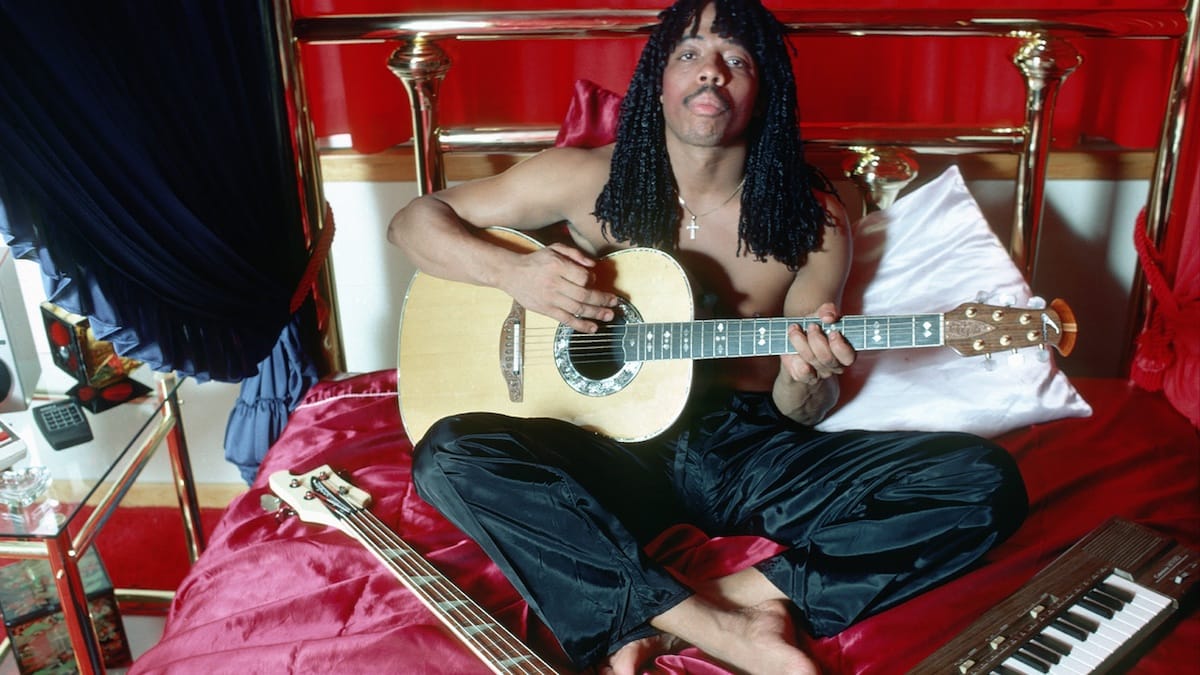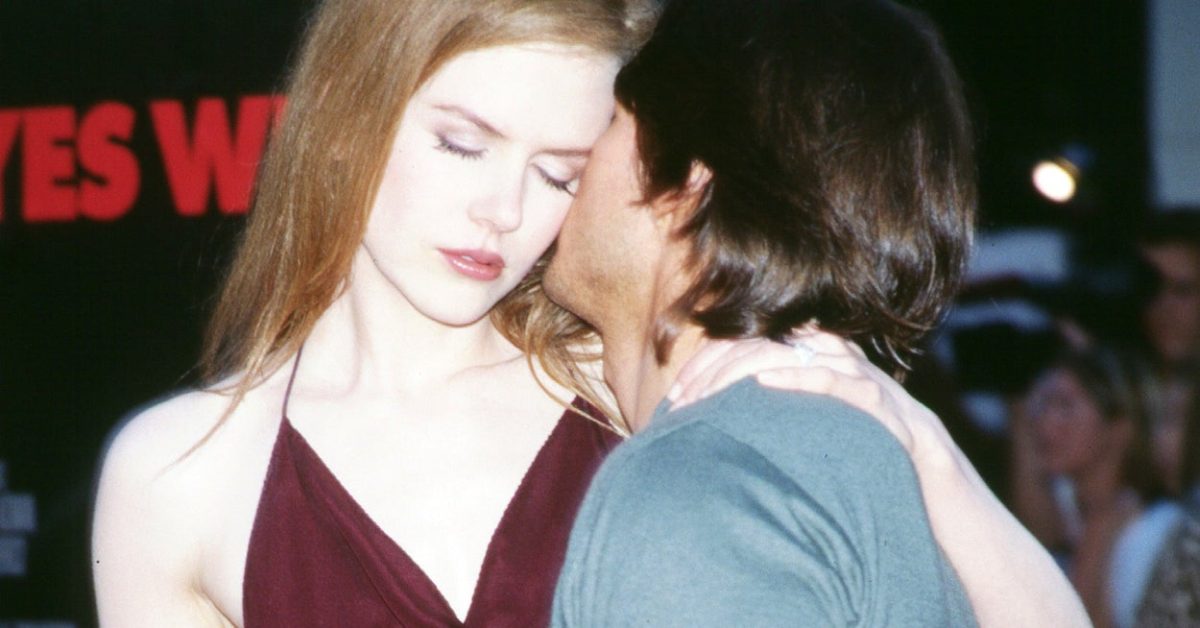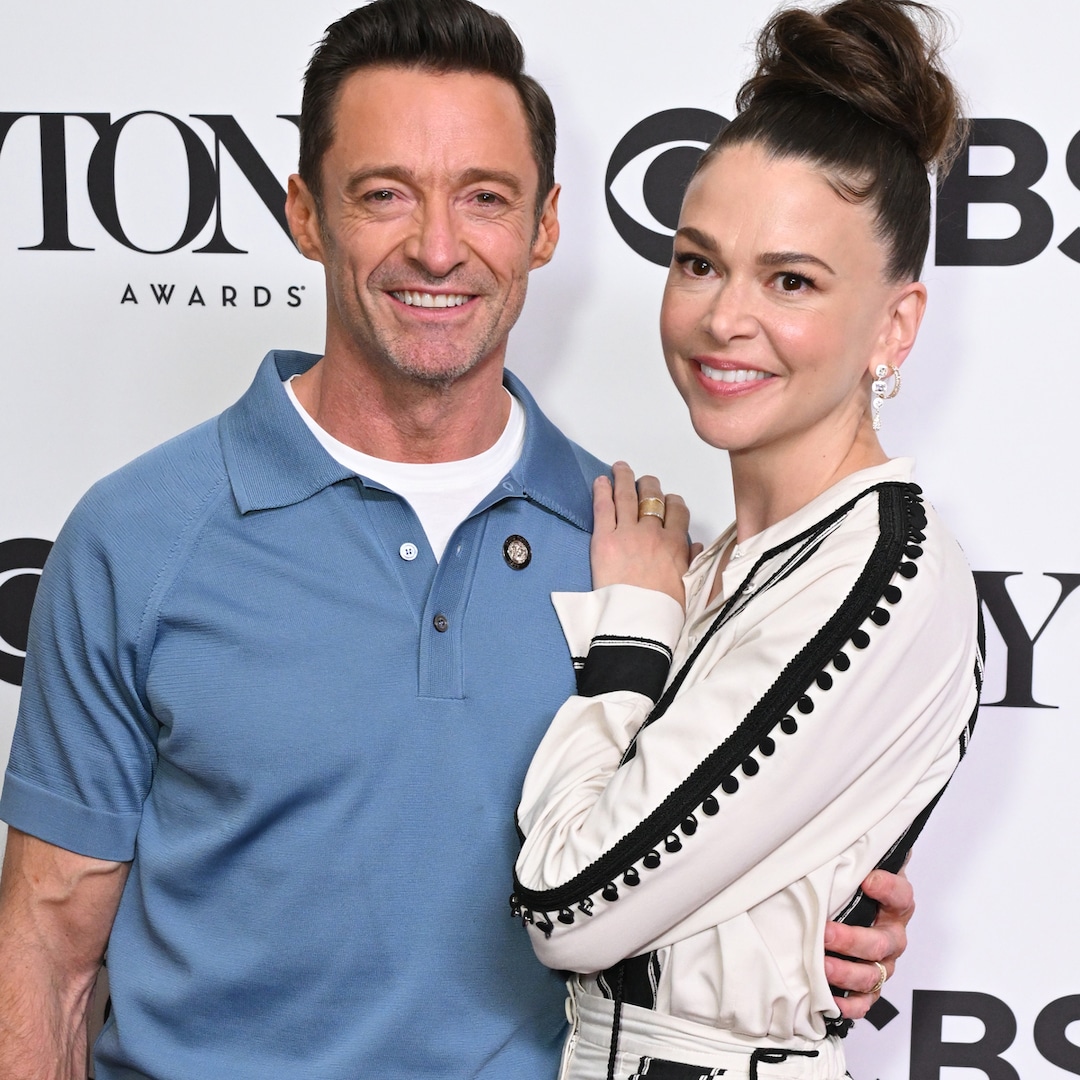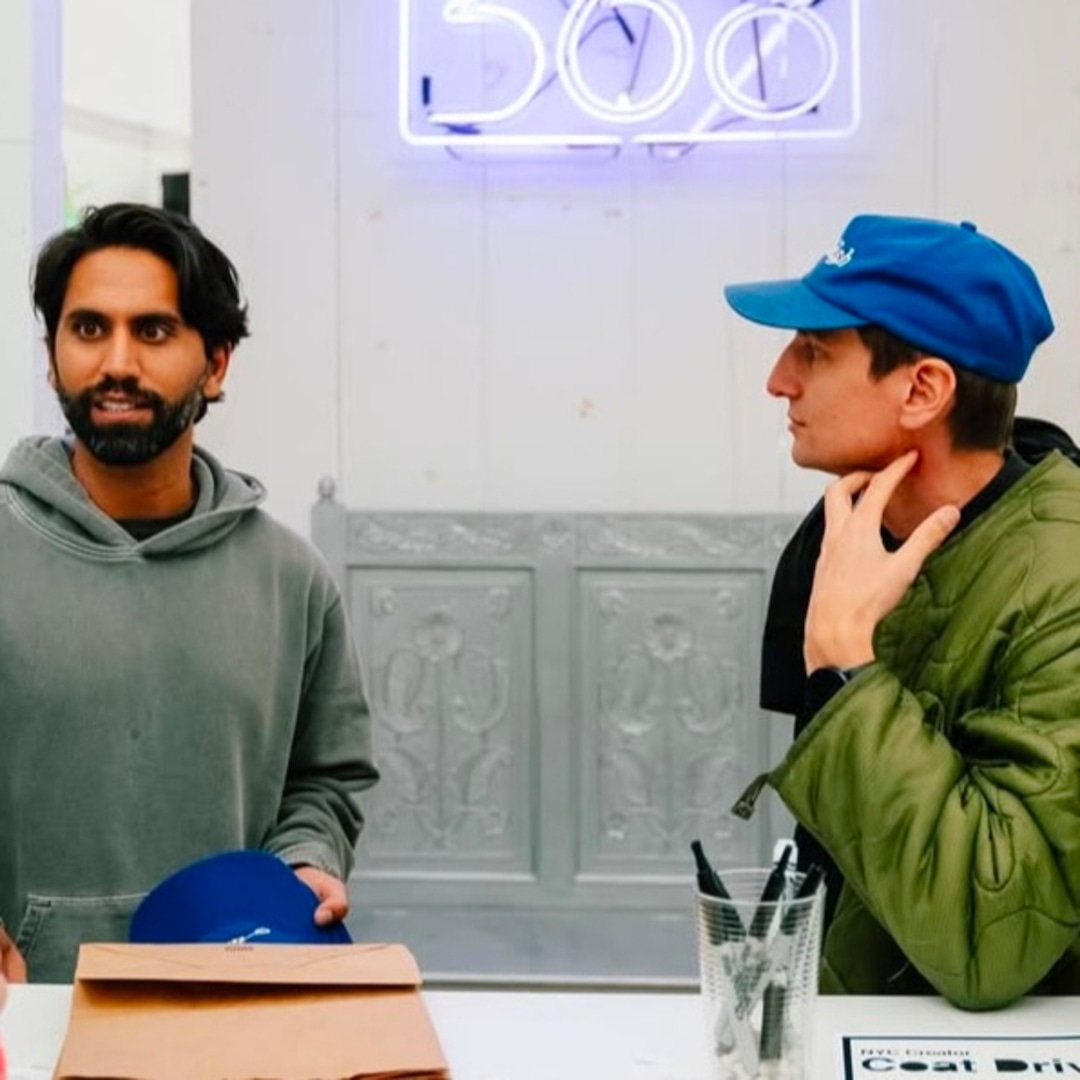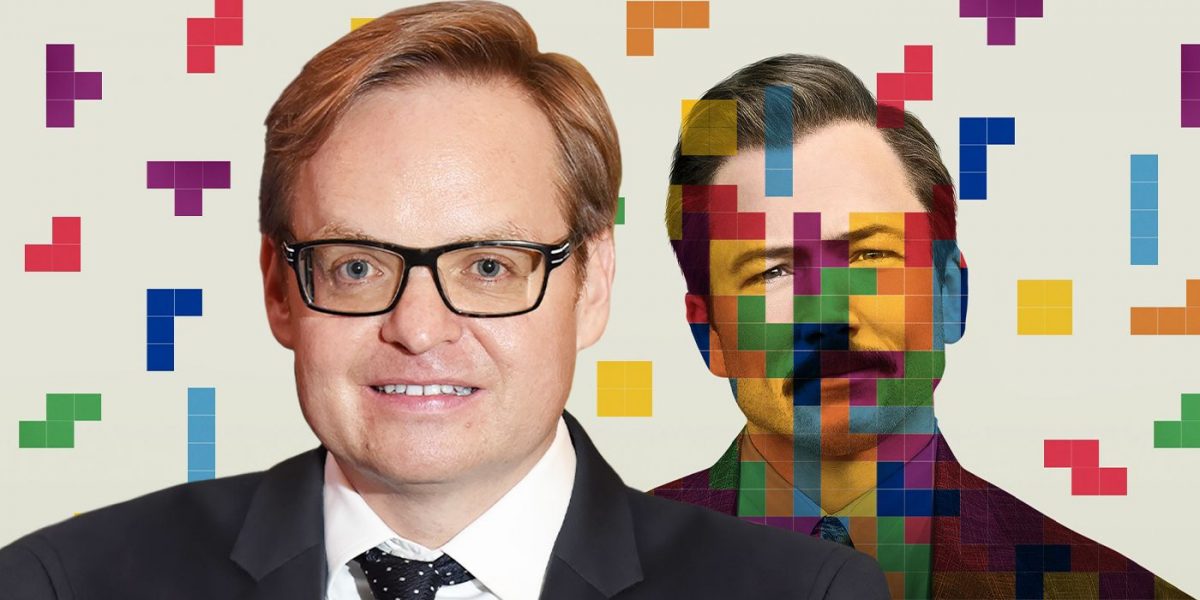
‘Tetris’ Movie Director Jon S. Baird Discusses the Unbelievable True Story
Mar 15, 2023
When you think of Tetris, one of the most significant achievements in video game history, the 8-bit classic probably doesn’t evoke thoughts of the Soviet Union and the KGB. In filmmaker Jon S. Baird’s (Filfth) Tetris, starring Taron Egerton, everything you thought you knew about this “[grandfather] of modern gaming” is upended in an insane telling of the phenomenon that was getting the Russian-based game to the masses. Ahead of the film’s SXSW premiere, Baird sat down to chat with Collider’s Steve Weintraub about adapting this original screenplay “…that’s got a bit of everything in it.”
Tetris, which will be available to stream on Apple TV+ beginning March 31, tells the unbelievably true story of Henk Rogers (Egerton), the Dutch video game developer who made it his life’s mission to secure the licensing rights to Russian game designer Alexey Pajitnov’s creation, Tetris. Both men serve as executive producers for the movie, which explores the dangerous lengths Rogers and Pajitnov went to within the USSR to ensure Tetris would reach the public. Rogers then doubles down and partners with Nintendo’s release of the Gameboy, going on to sell millions of copies of the game, but it was a long, treacherous road to get to that point.
In his interview, which you can read below, Baird discusses elements of the production process, from COVID delays to nailing the perfect Soviet Union architecture, and finding the balance between the game’s presence in the film and the political aspects without feeling “gimmicky.” The director also shares details about the inclusion of unique 8-bit transitions used in the movie, the pipeline from Kevin and Ghislaine Maxwell’s father Robert to Tetris, the creative license taken, deleted scenes, and tons more.
COLLIDER: Let me start with congrats on the movie. Sometimes you debate where to premiere a movie, but SXSW is actually the perfect place for this film because the audience absolutely knows Tetris there. Can you talk a little bit about how SXSW is a great place to premiere?
JON S. BAIRD: Yeah, I’ve never been to SXSW before, but it’s always something that was on the radar. It feels like none of the other movies that I’ve done would have been particularly right for that. So I’m really excited to get this one because it feels like the right fit, you know, it feels like it’s got enough of the game sort of element, but it’s got enough of the thriller aspect, as well, to appeal, to be a cross-section of the festival-going public, basically, there. Because I know there’s not just the film festival there, they’ve got the technology side, the music side and that, as well, but also for the real sort of film lovers as well. So it feels as though it’s a movie that’s got a bit of everything in it.
And obviously, people are taking a bit more notice of South By because – and it’s with the greatest respect I say that – but because of the success of Everything Everywhere All at Once, and what that’s done as well. So, I think it’s a really great time to be going to Texas and to be showing this film there.
Image via Apple TV+
I think that the most unrealistic thing in the movie is the short line at Moscow Airport.
BAIRD: [Laughs] Yeah, we just couldn’t afford enough extras, you know? Yeah. Have you been?
I have been and the lines are not that short.
BAIRD: No, I know. Basically, we were one of the COVID babies. We were one of the first ones out of the trap when the real serious lockdowns started happening, and it limited the amount of background we could have within a confined area. And that was one of the days that we were probably… In any other time, we would have had more. So that was one of the things that had to give was the amount of people in that airport.
I’m totally teasing you.
BAIRD: I know. I want to justify it anyway.
One of the reasons I think this film works is because everybody has played Tetris. I don’t know if you can make this movie about a smaller game.
BAIRD: I was never a great Tetris player back in the day when it first came out. I think I’m a better Tetris player now just for the fear of being challenged by Henk or Alexey to a game, not that I would beat them. So I’ve been practicing a lot more since I started doing the movie. But, as you say, it is a game that [there are] so many different levels to it, and there are so many different implementations of having success for Tetris, whether it’s your grandmother playing it for the first time and she’s got one line and it disappears, and that’s a huge victory for her. You know, and I think that’s a great thing about Tetris, the rewards are very instant when it comes to that, you know? Everybody remembers Tetris, of a certain sort of generation, especially because of the launch of the Game Boy with it, and it’s a game that’s kind of seeped into the fabric of society. It feels like one of the grandfathers of modern gaming, it just feels a bit like that.
Not being a huge gamer myself, I have to say the thing that attracted me more to this project was the socioeconomic, geopolitical aspect of it. I’m a politics graduate, and I was around at this time during the Cold War and during the collapse of the Soviet Union, so I was drawn to the story for that and less so for Tetris. So, I’m talking about it from that point of view, but even somebody like myself who is not, probably, the biggest gamer in the world is still very, very aware of that game and how significant and how important it is to where we’ve got to now with the gaming industry.
Image via Apple TV+
What is something in the movie that people are going to think never happened, but actually is true?
BAIRD: [Laughs] Okay, let me have a think about that. Probably the Maxwells going out to court [Mikhail] Gorbachev. That feels like a very sort of fantastical thing, but the Maxwells did court Gorbachev. Robert Maxwell considered him as an acquaintance… I don’t know if he was particularly a friend, but that was something that I was quite shocked about was the fact that they spoke to the premier of the Soviet Union. That’s a big deal over a game like Tetris, you know, that’s a big deal.
This is a crazy true story. Can you talk a little bit about where you felt you had license to embellish a little bit? Because so much of this is real, but you’re also making the movie.
BAIRD: Yeah, yeah, exactly. We’re not making a documentary. Something that changed quite a bit from the first draft of the script I read compared to where we ended up was towards the end of the third act, in the resolution of the film, the chase sequence through Moscow and stuff. We were being a bit metaphorical with that because they were under a lot of pressure from, obviously, the KGB and from Maxwells and from everything else, but the car chase through the center of Moscow to get to the airport and stuff was definitely a Hollywood version of their pursuit from the rival factions of who wanted Tetris.
So, you know, a car chase, what better way to make your movie exciting, or to make it feel like a bigger… To pull out the thriller or the action aspect to it? So, I think that’s probably somewhere that we took a lot of license, and it was an organic process with it, with the car chase, because we couldn’t go to Moscow and shoot. We probably couldn’t have done that if it was non-COVID times anyway because it’s very difficult to do something like that over in Moscow. That was before the war started in Ukraine, even before then it would have been very, very difficult to do. So all that car chase was done on a blue screen, the whole thing was plates and CGI, and organically, we fed into the sort of… We made elements of the Tetris game and the 8-bit graphics and stuff, we fed that in, and a lot of those ideas came through post, that wasn’t scripted, that came afterwards. So yeah, that felt like the biggest license that we took was the car chase through Moscow.
You shot a lot in Glasgow, I believe. How did you end up in that city for the place to shoot?
BAIRD: Well, we shot the whole thing in Scotland, really, which is where I’m from. We tried to do Eastern Europe and then COVID hit us, and then we came back to London and we started scouting in London, and we kind of felt that it wasn’t really gonna double well for the Soviet Union. Then, the locations guy, he had been scouting up in Scotland and had said, “Look, the architecture in Glasgow is very neo-classical, and the person that Catherine the Great got to design Saint Petersburg and Moscow was actually a Scottish guy, and they copied the architecture from Glasgow and Edinburgh onto those places.” So we said, “Okay, that will work for us.” But we were still struggling to get the brutalist stuff, so the Stalinist, brutalist, more concrete buildings that people will recognize from those Soviet times. And then it just so happened that the city that I grew up in, Aberdeen, which is in the northeast of Scotland, there has never been a big movie shot there before, but it provided these incredible huge concrete monoliths that doubled incredibly well for Moscow.
So it was almost a mistake, us going up to Scotland. So in the U.S., the analogy would be, people sometimes don’t shoot in New York because it’s very expensive, so they’ll maybe go to Atlanta, and they’ll go to Toronto or something like that, and they won’t go to L.A., they’ll go up to Vancouver for tax breaks, or something like that. And likewise, it’s so expensive to shoot in London, and it wasn’t right anyway, but Scotland provided us where you could get more for your dollars up in Scotland because things are less expensive.
Image via Apple TV+
I really enjoyed the use of the video game shots as the establishing shots or the connective tissue between scenes. Was that in script? When did you figure out that you wanted to do that?
BAIRD: Yeah, so that, again, was an organic process. The script had different chapters, and it was like “Level One,” “Level Two,” and stuff, but it didn’t have the 8-bit graphics with the characters. So that idea came in post. And then as we were building those chapters, we realized that because we… Again, because we couldn’t go to… Russia was different because we used, as I say, some of the Scottish locations and then built our set extensions through CGI. But when it came to Tokyo and Seattle, and places that we couldn’t go to, we found that this 8-bit graphics idea that we’re using for some of the characters we could amalgamate that into not only part breaks, or chapter breaks, but also for just general sort of exteriors for locations, as well, that we couldn’t get.
So instead of like using archive material, which I know a lot of people are starting to do now from back in that time period, we said, “Right, okay, let’s just make a virtue of this and incorporate the graphic idea into the exterior stuff as well.” So it was an organic process that came a long way from where the script was to where it ended up.
I’m assuming you did some test screenings or some early friends and family screenings of the film. What did you learn from those early screenings that changed the movie or impacted the finished film?
BAIRD: The only time we tested the film it was a director’s cut, and we had an incredible score on it. We had a really high score, it was something like 90 we scored on the director’s cut. So we knew we were in a really good place. We kind of felt that it was slightly too long. So I think the director’s cut was gonna be two hours 10, and the eventual movie came down to two hours. So I think we lost 10 minutes. So we tightened up the film, but the director’s cut didn’t have any of this sort of the 8-bit graphics stuff in it because it was after 10 weeks, so we didn’t have enough time to do that.
So the film changed most dramatically with the inclusion of the stuff I’ve just been talking about, with the CG and the 8-bit graphics, because all the director’s cut was tested with a load of blue screens for Moscow and for car chases and stuff like that. It was quite bizarre, just said to the audience, “Just imagine that there’s going to be a car chase here, whatever.”
So I think that was the main difference from the cut that we tested to the cut that we finished up with was it was 10 minutes shorter, the last one, so it felt a little bit quicker in pace, which generally that does happen with final cuts and director’s cuts. But the biggest difference was the amount of CGI work that went into… It was about a year’s work that we took to do that as well. And plus we had an extra couple of scenes to shoot, as well, and we had to wait a year for that to get Taron’s availability. There [were] a couple of scenes that needed tidying up, but yeah, it wasn’t a huge difference, but there was definitely a difference.
I’ve spoken to a lot of filmmakers where they film and then they have to do some additional photography – which, to be clear, that happens on every movie, this is not a big deal, but what is it like as a director waiting for like a year to film additional photography? Are you, in your brain, freaking out a little bit like, “I need this to happen”?
BAIRD: Yeah, you do. You completely freak out, I think because the actors go off and do other things, and they change into other people, and they come back, and you’ve got to start the engine again for them to become the characters they were because they’ve played two or three people by the time you do that. So that’s one big thing. The thing with this is we had waited a year, we were about to do it and then somebody, I can’t remember who it was, but somebody got COVID, which meant that we had to put it off again for another few months, and then I broke my ankle playing soccer. So when we came to do the additional photography, I was in a wheelchair with my foot in a cast and a boot and stuff like that.
So, it’s just all this craziness goes on, and again, it’s like starting the engine. It’s like a car that has been parked outside in the snow for a year and trying to get it started, trying to get the crew back into the place that you wanted to get them, and particularly the actors, and remind them where we were at that particular time.
I’m always curious about the deleted scenes. You mentioned that it was like a 10-minute difference, was there a storyline or was it just you tightening scenes?
BAIRD: I think the biggest thing that we lost was there [were] more scenes between Henk and Sasha, who was the interpreter. I won’t spoil that for everybody, what Sasha is. But yeah, him and the interpreter, there was a sort of side story that went from there. And there was another beautiful scene when Henk met Alexey in the chess federation, which is a beautiful scene in this, it was almost like a war between East and West when they first meet each other over this chess game and stuff. That got lost. And then a bit of the storyline between Henk and the translator got lost. But apart from that, it was pretty much the same.
We did add in a little bit at the beginning, more for exposition really, but Henk is sort of telling the story of Tetris to the bank manager and setting up in the first few scenes because we felt as though that needed a little bit more clarity. So those were things really, that’s where our 10 minutes kinda came and went.
Image via Apple TV+
I’m very curious what it was like showing the film to Henk and Alexey for the first time, and what was it like for you? Were you sitting in the theater? Were you outside?
BAIRD: I wasn’t there. No, I was in the UK. Well, Henk stays in Hawaii, and Alexey’s on the West Coast somewhere, maybe up in Seattle. So they screened it for them in LA, and I wasn’t there. I was in the UK at the time, I was working on another job by that point. So, it was like in the middle of the night for me when they were screening, so it was very nerve-wracking because I’ve done a lot of this true story stuff before, and it’s really make or break when the real people, or relatives of the real people, see it for the first time. Because they can make or break your movie by saying, “Okay, we like it,” or if they don’t, then you’re kind of in trouble, I think.
We were very fortunate that they did like it. The biggest compliment I got was from Maya [Rogers], who since became a good friend, who’s obviously Henk’s daughter and runs the Tetris company now. And she said, “Oh, I forgot that I was watching myself on screen and I was watching these characters,” and I think that’s good. I think you’ve managed to succeed, with them anyway, when they forget they’re watching themselves.
Matthew Vaughn produced this. What is he like as a producer to work with him and what was it like showing him the film?
BAIRD: Well, he’s obviously a director, as well, so you take that into account. Because it was COVID and we were up in Scotland, he kind of just left us to get on with our own devices during the main part of the shoot. I would talk to him on the phone and through Zoom and stuff, and he’d obviously be watching rushes and stuff. But I think he was very pleased with what was coming down with that.
Matthew notoriously gets more involved in the edit. He does that a lot with other directors he works with as well. He kind of leaves you to get on with it during the shoot, and then lets you do your director’s cut, and then he’ll come in after that. So I think his main notes were more like, “You need more of the 8-bit graphics stuff, more of the Tetris game stuff in there as well.” Where I’m a politics graduate and would have pushed more of the Cold War stuff, he would have wanted more of the game stuff in there.
So there’s just a fine balance because I think at one point we put in too much graphics and it ended up too gimmicky, and then we sort of pulled it back to get to this balance, just that sort of trial and error. But yeah, it’s good. I learned a lot from working with him, and I think the film has benefited from having those voices come in and making it what it is now.
People in America, they’re not as familiar with Robert Maxwell as people in the UK. He’s a pretty terrible person. I guess he was good at the beginning but then, I mean, I don’t know his full thing.
BAIRD: [Laughs] No, I think he was always terrible, to be honest.
Yeah, I don’t know enough about him to make a definitive statement except to say that at the end he was fucking terrible. Can you explain to people who he was, and that it’s just crazy that he was involved in all this?
BAIRD: Yeah, so Robert Maxwell was – if you know who Rupert Murdoch is… So Rupert Murdoch is the guy who runs and owns Fox, Fox News. So, back in the day, back in the ‘80s in the UK, Rupert Murdoch’s main rival was Robert Maxwell, and Murdoch owned one half of the press and Maxwell on the other half of the press, and they hated each other. They were these press barons. They had come up through very different ways.
Maxwell was a guy who had fought in the war. He was Czechoslovakian, had fought for the Allies’ side, and a lot of his family had been killed during the war, I think in concentration camps. But anyway, he came to the UK, he made a fortune, he became a member of Parliament, and then, like a lot of these big press barons, the power maybe got him. He ended up as a real disgrace because the company ripped off their employees with their pension and left it in a real state. And he died in very sort of dubious circumstances, but – this is not something we touched on in the film — his daughter is Ghislaine Maxwell, as well, who people will probably be more aware of that. So there is a lot of, obviously… I don’t know how to explain, but yeah, [there are] a lot of stories with that family, let’s say.
Image via Apple TV+
Completely. It’s crazy that he and his son were involved in all this.
BAIRD: His son actually told me – I found his son before we shot this film, and his son, who I had a very cordial conversation with, he read the script, so he realized the take we had on this. And I said, “Kevin, what do you think of the script?” And he says, “I think you’ve done a good job” he said, “I think the KGB [was] probably [scarier] than how you’ve got them.” He says, “But one thing I can tell you, my father was a lot worse than how you’ve portrayed him.”
He actually said that?
BAIRD: Yeah, and I won’t even say the word that he used, it’s a word that I won’t use just now. But yeah, he said his father was… We’ve let him off, basically.
In the trailer for the film, and in the movie, you use Europe’s “The Final Countdown.” How did you decide on that song for the film, and was it ever something else?
BAIRD: I think in the original script it was “Under Pressure” by Queen and David Bowie. I think that was the version of the very first script. For various reasons we didn’t think that was right. “The Final Countdown” was basically chosen because it just works in terms of tone, but in terms of our cultural reference, it was the last song that was played on East German radio before the Berlin Wall fell in 1989. That was obviously the catalyst that led to the breakup of the Soviet Union, which is the time that this is set.
So we felt as though as a cultural, political reference, it was quite relevant because that was what people were listening to when the fall of communism started. This party that they’ve gone to when Henk is singing “The Final Countdown” is almost like a rebellion against the Soviet Union at that time, and they’re celebrating the fact that the former Soviet Republics have started to go independent and stuff. So we thought that was a nice nod to that historical fact.
Image via Apple TV+
During the credits – I’m not spoiling anything – you have some video of Henk. How did you decide what you wanted to include there, and was it ever more video while the credits were playing?
BAIRD: Yeah. Again, I mean, we threw everything at this. When you do a movie about real people, that sometimes takes longer than anything else, the end credits. The arguments you have about the wording of the cards, and how many cards are gonna be in there, and how many shots, and which shots to use, and things like that. That often takes months to decide on because it’s all about the ending, everybody knows. It’s what movies are judged on, really, is how people feel when they walk out of the cinema.
When you’re doing a movie about real people, it’s often the thing that really has the seal of approval, and is the golden seal, is when people kind of sit back and go, “Wow. Wow, this did actually happen,” or, “He does actually look like him,” or, “I can see why they did that now.” So, I’m sure we had a million different versions of that. At one point, we had so much archive of the Fall of the Soviet Union and more stuff about Nintendo and Atari and stuff, and it’s just you throw it at the wall, see what sticks, and then edit it. You literally have that section on its own. You edit that down and down and down, you get the right music and stuff, and it takes forever to get the right balance. So [there are] a million different versions of that, so I can’t even remember how we ended up with how we did.
Tetris will be available to stream on Apple TV+ beginning on March 31.
Publisher: Source link
Nicole Kidman’s Viral Getty Image Catalog
Nicole Kidman's Viral Getty Image Catalog Nicole Kidman has stepped back into the limelight to promote the new A24 erotic thriller Babygirl — and she’s looking as radiant as ever. The Academy Award-winning star has had an incredibly storied career,…
Jan 14, 2025
Hugh Jackman and Sutton Foster Have Steamy Makeout Session
The Music Man's final curtain call was in January 2023. But it wasn't the only thing to come to an end. In September of that year, Jackman and his wife of 27 years Deborra-Lee Furness announced their split."We have been blessed…
Jan 14, 2025
Mandy Moore Shares She’s Unsure If Her Home Survived
California Fires: Mandy Moore Shares She's Unsure If Her Home Survived On Tuesday, Mandy shared on her Instagram story that she, her children, and her pets left their home and were safe. "Evacuated and safe with kids, dog and cats.…
Jan 13, 2025
YouTubers Colin, Samir Lose Homes to L.A. Fire as Wives Are Pregnant
Angelina Jolie, Halle Berry, Jamie Lee Curtis & More Stars Are Giving Back Amid LA FiresYouTubers Colin Rosenblum and Samir Chaudry are opening up about their heartbreaking situations. The duo, otherwise known on the platform as Colin and Samir, recently…
Jan 13, 2025


